[vc_row][vc_column][vc_column_text]
Nigeria’s AFCON Stories Episode 2 – ETHIOPIA 1976
By Haruna Ilerika
Biodata
Full Name: Haruna Olatunji Ilerika
Date of Birth: 27th October, 1949
Nicknames: Master Dribbler, The Tailor
Start of Football Career: 1969
Clubsides Played For: Metal Construction 1969-1970, Stationery Stores, Lagos , 1971 – 1982
Club Honours Won: FA Cup silver medal 1980
National Team Honours: 2nd All Africa Games gold 1973, Bronze medal “African Olympics” in Mexico, African Nations Cup bronze 1976.
Start of National Team Career: 1971
Opponents/Event: Vs Lone Star of Liberia in Monrovia (friendly). Nigeria won 3-1
First Nations Cup Appearance: 1976 ANC in Ethiopia
Most Memorable Event: National team debut. I used the opportunity to grab a permanent jersey in the team though I didn’t score. Some Nigerians who watched the game in Monrovia even ‘dashed’ me a few Liberian dollars.
THE QUALIFIERS
Nigeria were drawn bye in the first round of the qualifiers for the 1976 African Cup of Nations. We then recorded a walk-over against Central African Republic (CAR) in the second round before confronting Congo People’s Republic (CPR) in the third and final round.
Congo had eliminated us from the race to the 1972 edition which they went on to win in Cameroun. But this time, we got back our pound of flesh by beating them 3-1 on aggregate, 1-0 in Brazzaville and 2-1 in Lagos. We therefore qualified for Nigeria’s second ever Nations Cup finals, although it was the first appearance for all the players.
PREPARATION AND SQUAD SELECTION
Immediately I graduated from high school in 1970 (Zumratul-Islammiya Grammar School, Lagos), I was picked by Nigeria Football Association (NFA) scouts to join the national team. I started in 1971 as the youngest school-boy footballer in my days. But I didn’t get to make my national team debut until a year after.
My first day in the national team camp was quite ordinary, but I can recollect that I met a lot of players in camp. Players like the late Sam Garba Okoye, Sam Opone, Segun Olumodeji and Jossy Dombraye were already established names in the national side and I looked a bit awkward in their midst being the youngest in the team.
The first thing that I remember they did to me was to pack all their jerseys after training and gave to me to wash. I would wash, wash and wash till mid-afternoon before I took my breakfast. Those were the days when there was discipline in the national team, and younger players respected the older ones. I’m not saying that young players should be given jerseys to wash these days, but at least there should be a measure of discipline, seniority and respect in the national team.
I must be sincere to all Nigerian fans. If any coach tried the kind of training we underwent during our preparation with any team these days, the players would not turn-up for training the next day. You could imagine us running round the whole of the National Stadium complex in Surulere for about 18 times, before we went into the mainbowl. On getting inside, we would then run on all the eight lanes of the tartan tracks, one lane after the other.
We would then put off our training canvas and then wear our boots and start ball-work. Tell me, is that not serious? Everyone of us was just like “stock-fish” in our days. There was no way you could get robust or add weight.
The coach was a Yugoslav, Jelisavic Tihomir-Tiko, otherwise called Father Tiko. He was assisted by Nigerians Godwin Etemike, Carl Odwyer who handled the goalkeepers and also the Dan Anyiam. So the team had good coaches and they were very friendly with us, While I was in camp preparing for the Nations Cup, I stayed in the same room with Kenneth Olayombo and we were called ‘two inseparable’ then. In those days we weren’t lucky to sleep in five-star hotels like players do now. We were camped while preparing for the competition at a simple one-storey house on Ogunlana Drive in Surulere, Lagos which later became the NFA office annex.
The camp was packed full with double-decker beds, and a caterer was contracted to bring us food thrice daily. All our preparation for Ethiopia ’76 was done back at home though I would have loved us going overseas.
As I mentioned earlier, I made my debut in 1972 against the Lone Star of Liberia in Moronvia, and from then I became a full regular in the side. So it would have been a surprise if I wasn’t named for the 1976 Nations Cup. In fact, there would have been an uproar if Nigerian fans didn’t see my name on the list for the competition. I was an automatic choice so I wasn’t surprised that I made the team to the finals.
We were airlifted to the finals by the host country’s official carrier – Ethiopia Airline. It was the same airline that lifted the teams of the other participating countries to Addis Ababa.
I was a schemer (midfielder) from the left side, Muda Lawal played from the middle and Alloysius Atuegbu played from the right in a 4-3-3 system. The three forward players were Baba Otu Mohammed of the famed Mighty Jet of Jos on the right side, while our top striker was the prolific Thompson Usiyen together with Kunle Awesu on the left. In defence we had Samuel Ojebode of Shooting Stars and some other players while Joe Erico of NEPA Lagos was in goal.
THE TOURNAMENT
We played our first stage matches in Dire- Dawa. After qualifying from there, we were moved back to the capital, Addis Ababa to play the final stages. I remember that we stayed at the Wabes-Sabele Hotel, which was like the prestigious Sheraton Hotel and Towers in Lagos. But I can’t readily remember the name of the hotel we stayed in at Dire Dawa.
We were a very disciplined bunch, so there was no need for a camp commandant. It was difficult to see anyone strolling out of camp, going out to drink or looking for women. We were all matured and we comported ourselves well. I was paired in a room with Kenneth Olayombo. We really didn’t share much in common, but I just liked him naturally.
FIRST PHASE
Days before any game, we usually concentrated on the game to be played. Personally for me, I would think about the game several days before. The coaches would tell us before games to keep a cool head, to play to instructions and so on, but I tell you when real action starts, you forgot so many things they told you. Our opening game against Zaire was fantastic. The Zairians had been to the 1974 World Cup two years earlier, so they were favourites to win. But against all the odds, we beat them 4-2. Baba Out got two goals while Ojebode and Usiyen scored one each. In our second game, Usiyen scored again as we beat Sudan 1-0 but we lost the third game 3-1 to Morocco. We finished second in the group behind Morocco and qualified for the second phase in Addis Ababa. Zaire and Sudan were eliminated.
SECOND PHASE
The second phase was tougher because we (Nigeria and Morocco) now had to play Egypt and Guinea, the two teams that had also qualified from the Addis Ababa group. All four teams played a round-robin mini-league where the team with the highest number of points would win the tournament. It was not like the quarter-final, semi-final and final format as we have it now.
Unfortunately, we started badly against Guinea, playing out a 1-1 draw. Their famous player, Papa Camara scored for them while Muda Lawal scored for Nigeria. Morocco had beaten Egypt in their own first game and we were determined not to lose to them (Morocco) a second time, but the Senegalese referee who handled the match spoilt it for us with his poor officiating. We lost 2-1 with Baba Out getting our goal, and we knew we could not win the tournament again because Morocco already had six points from two games while we had only one point.
Nevertheless, we went all out for our last game against Egypt and that was the match that turned me into a hero. I was in great form on that day and I scored two fantastic goals as we defeated the Egyptians 3-2. Muda Lawal got our third goal. After the match, everybody started singing my name. We finished third behind Morocco and Guinea and won the bronze medal which was Nigeria’s first ever medal at the Nations Cup. We made history.
MEMORIES
Apart from the football, there were a lot of other interesting things I can recollect about the 1976 Nations Cup.
The food we ate at the tournament was brought from home. We packed all the food we would eat: palm-oil, panla (stock-fish) name it, everything! So we were cooking by ourselves! The camp had so many types of characters.
The funniest player then was the late Yakubu Mabo. He was a Ghanaian adopted by Nigeria, but because of his manner of speaking English we used to laugh at him. Jossy Dombraye was the most stubborn player we had in camp. I remember that we had to wake up and be ready for training latest by 6.30am, but that would be the time Dombraye would be looking for his hose or boot while the rest of the team were already inside the bus. But because he played as a left winger and he was very important to the team, the coach would plead that we should just ignore him when he finally made it to the bus.
But really, there were no disagreements or quarrels in our days; we were all disciplined players. There were no fights and we did everything together. I dare say that it would be very hard for Nigeria to assemble a team with such spirit again. When the players love each other, you cannot discriminate with passes on the pitch. Talking about what we earned or got as reward for winning bronze at the 1976 Nations Cup, I would tell you that we got nothing whatsoever. Even before that, when we beat the whole of Africa at the football event of the 1973 All Africa Games, I remember that the Head of State, General Yakubu Gowon promised us all sorts of things at Dodan Barracks if we won gold. After the event, we were camped for about two weeks before going to Dodan, but when we got there what did we get?: “Well done boys, the nation is proud of you,” and that was all.
So, how would you expect the government to reward us for winning bronze in 1976, when we got nothing for winning the All Africa Games gold in 1973 in Lagos? As for daily camp allowance, we got 10 shillings a day. It was the days of Pounds and Shillings but there was no match bonus for winning or drawing a game. These days, I hear they give match bonus even for losing so long as they feel the team has played well!
In those days, Juju music was the genre of music in vogue with Sunny Ade and Ebenezer Obe who incidentally waxed a song in my honour then. But when we went to the stadium on match days, we sang different kinds of songs on our team bus and songs came mostly from the Igbo players amongst us. Mathias Obianika was our lead singer. Those songs would make your head to swell as you approached the stadium.
Samuel Ojebode and Zion Ogunbufunmi our second choice goalkeeper, usually led team prayers before kickoff. Ojebode was also the team’s captain and he was a great leader right from the days of WNDC football club which became IICC Shooting Stars and later became Shooting Stars Sports Club (3SC). He played at the left full back position, and he was coolheaded which was a quality we needed in our captain at the tournament.
The NFA chairman then was Chief Sunday Dankaro and his vice chairman was Mr. J.K. Tandor. One episode that stood out the most for me at the 1976 tournament, was our victory over Zaire who, despite their disastrous performance at the 1974 World Cup, were top favourites to beat us. We won the tie and a girl I would never forget, (she was said to be the daughter of an Ethiopian minister) came to me there in Dire Dawa, gave me an 18-carat gold necklace and offered to marry me! But I couldn’t take her since I was already married then. It was something I still fondly remember and maybe regret!!!
However, another episode that could have turned out embarrassing turned out good for us. After our third place match win in Addis Ababa, the official carrier – Ethiopia Airline – said our aircraft had problems and they needed to buy new parts for it so we couldn’t fly out. We were ‘stranded’ for about two weeks, but all that time we were feeding fat at our Embassy in Addis Ababa. Later, the girl in Dire Dawa came to Addis Ababa to see me again and stayed there with me till we left for Nigeria. So what should have been embarrassing for us, turned out to be real fun for me!
THE AFTERMATH
Back then, it wasn’t the practice for fans to throng the airport to welcome the national team back from any competition. But in my locality in Ebute-Metta, Lagos, I was well admired and people looked at me with great respect and admiration as a national team player. The newspapers also gave us good reports and really commended us. They called me ‘Master-Dribbler’ and ‘The tailor’ apparently because of my tailor-made passes and crosses.
As I said before, I realized not a single kobo playing at the Nations Cup for Nigeria. It was much later in my life that the former Lagos State Governor Bola Tinubu and his successor Raji Fashola came around to help me out. If not for their support, a national hero like me would have lived and died like a pauper.
The national team was disbanded after the 1976 tournament as was the style then, and I went back to my club, Stationery Stores. Myself and two other Nations Cup team-mates Sani Mohammed and Yakubu Mabo were treated with great respect and other players were looking at us like the club had just signed some new Peles from Brazil!
However, my greatest regret about the 1976 Nations Cup remains how we were robbed by the Senegalese referee from becoming the first side to win the Nations Cup title for Nigeria. But I also can’t forget that lady who offered her hand in marriage to me.
THE SQUAD
GOALKEEPERS: Joseph Eric (NEPA, Lagos), Zion Ogunfehinmi (IICC, Ibadan)
DEFENDERS: Sanni Mohammed (Stores, Lagos), Ikechukwu Ezidinma (Rangers, Enugu), Samuel Ojebode (IICC, Ibadan), Idowu Otubusen (Alyufsalam Rocks, Ilorin), Godwin Odiye (Nestle, Lagos), Christian Chukwu (cpt) (Rangers, Enugu)
MIDFIELDERS: Kelechi Emeteole (Rangers, Enugu), Muda Lawal (IICC, Ibadan), Aloysius Atuegbu (Mighty Jets, Jos), Haruna Ilerika (Stores, Lagos),
FORWARDS: Baba Ottu Mohammed (Jets, Jos), Thompson Usiyen (Ndoro Island, Warri), Sunday Oyarekhua (Police, Lagos), Kunle Awesu (IICC, Ibadan), Kenneth Olayombo (4th Infantry, Lagos), Ogidi Ibeabuchi (Rangers, Enugu), Alex Nwosu (Rangers, Enugu)
COACH: Jelisavic “Tiko” Tihomir (YUGOSLAVIA).

[/vc_column_text][/vc_column][/vc_row]

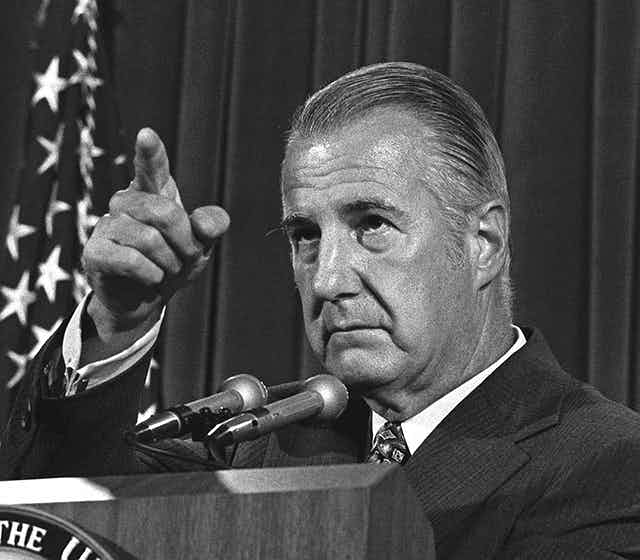
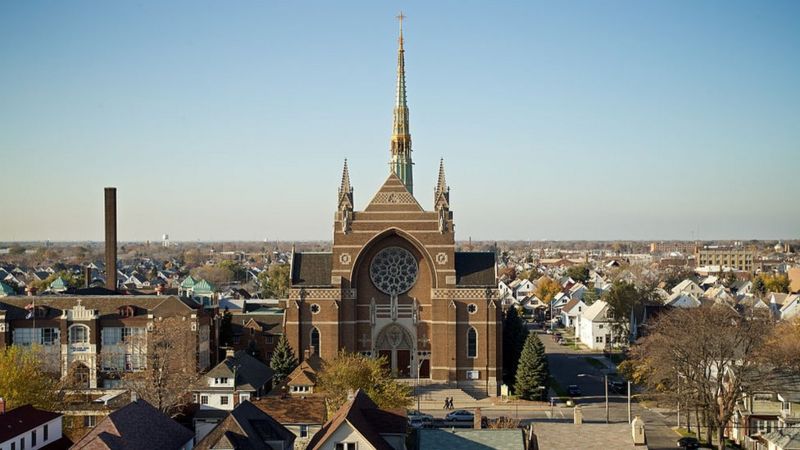
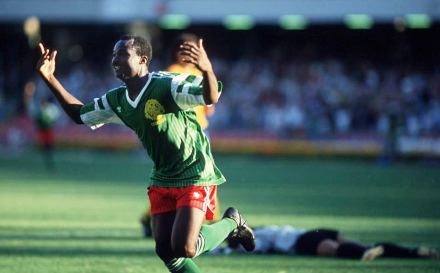
![Podcast EP 18: Late Stephen Keshi on the heartache of Senegal '92 and intrigue of AFCON '94 [Listen] 6 Podcast EP 18: Late Stephen Keshi on the heartache of Senegal '92 and intrigue of AFCON '94 [Listen] 4](https://naijasuperfans.com/wp-content/uploads/2020/05/stephen-keshi-1.jpg)
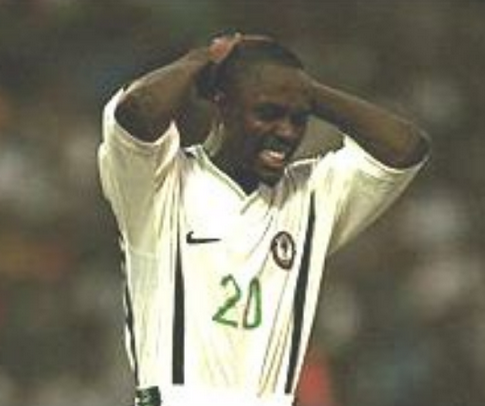
![Watch Odegbami recreate his first goal in the 1980 AFCON final [Video] 8 Watch Odegbami recreate his first goal in the 1980 AFCON final [Video] 6](https://naijasuperfans.com/wp-content/uploads/2020/03/20200323_165745.png)
![How Nigeria won AFCON in 1980 – Segun Odegbami with Mumini Alao [Video] 9 How Nigeria won AFCON in 1980 – Segun Odegbami with Mumini Alao [Video] 7](https://naijasuperfans.com/wp-content/uploads/2020/03/20200321_201622.png)


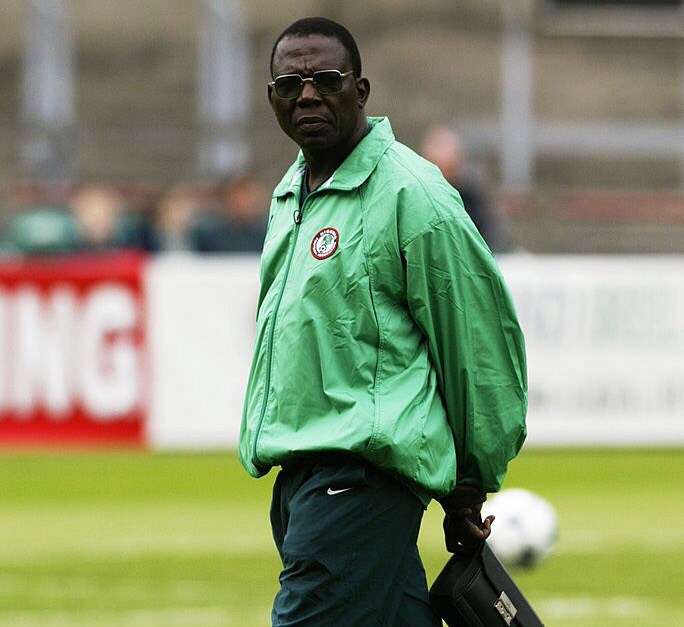
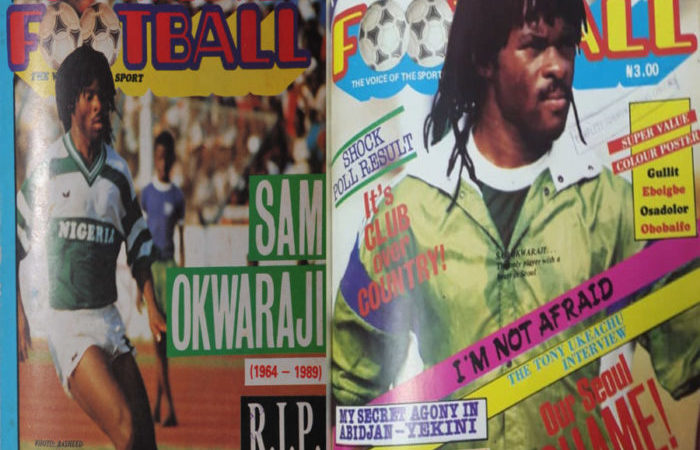
Very Interesting piece. Sad they didn’t get anything from winning the All african games 1973 & 1976 ANC bronze.